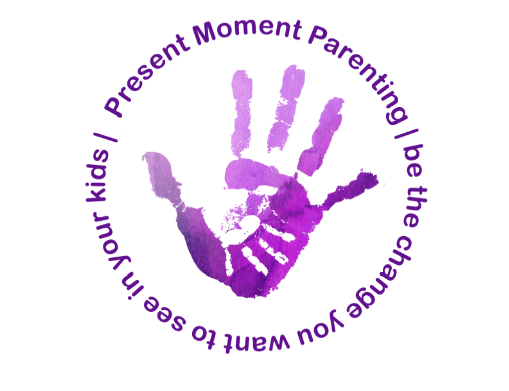
“I hate you I hate you I hate you” We’ve all heard that one and most of us can simply laugh it off and know that within an hour it will be all love again. We know that part of parenting involves bearing the brunt of our kids’ bad moods and lack of emotional maturity. And children need to know that it is safe to express these strong emotions without you or the world falling apart.
But what about when you do something or make a difficult decision and your child turns around and says “You don’t love me”. That’s a slightly more difficult pill to swallow. Particularly when all we’ve done since the day they were born is pour every inch of love possible in our beings into them.
But what about when you do something or make a difficult decision and your child turns around and says “You don’t love me”. That’s a slightly more difficult pill to swallow. Particularly when all we’ve done since the day they were born is pour every inch of love possible in our beings into them.
Every move we’ve made, every decision we’ve battled with, has been with love in mind. Every night we’ve stayed up til the early hours nursing a fever or calming a nightmare. All the lifts and meals and outings and play dates and parties. All the worrying and planning.
Do they know how much we’ve sacrificed? The scars we bare? The grey hairs?
We want to turn around and scream – “How dare you assume how I feel!”
But what we normally do is relent on our previous decision. We give in. And we beg for forgiveness. “Of course I love you… How could you think I don’t love you… I’m sorry I was cross… I’m so sorry. Come here and have a big hug.” Or something along those lines.
The thing is, this is actually a manipulation tactic. We all know that. And yet we all fall for it. Because love is supposed to be unconditional and unquestioned.
Having our children say that we don’t love them often brings up all kinds of guilt – about not spending enough time with them, or not giving them everything you hoped you’d be able to, or wishing that you’d just had one child instead of two (or three or four). Having your child say you don’t love them brings up all kinds of fear – that they don’t feel loved enough, that they’ve noticed how distracted we are lately, that they somehow know that we don’t always like them and wish we could take a break.
It plays into all our repressed emotions. It plays into our own unresolved childhood stuff about not being seen or heard or understood. It pushes buttons we didn’t even know were there before.
This is good. When you’re triggered by your child it is a fantastic time to start looking inward and see what it is that you need to deal with. Maybe not right then in that moment, but when you get a quiet moment to reflect.
So what do we do in that moment?
The best way to handle this is to first take a deep breath, and then say, “This isn’t the time to talk about love. Right now we are talking about (your friend’s sleepover / the uncleaned rabbit cage / how to deal with your sister without violence / whatever it was that brought this up in the first place)” . Then you can acknowledge their anger or disappointment and work together towards a solution.
This is a gentle lesson in the art of not falling into the manipulation trap. It will be useful to your children later on as they navigate their own complicated relationships and will help them to focus on the problem at hand without getting sidelined by emotional blackmail. As we mature in our responses, so our children can mature in theirs.
Having a hard time with mature responses in difficult moments? My Parenting Breakthrough Experience has an entire section dedicated to clearing out the emotional baggage that triggers you. Sign up now!
Do they know how much we’ve sacrificed? The scars we bare? The grey hairs?
We want to turn around and scream – “How dare you assume how I feel!”
But what we normally do is relent on our previous decision. We give in. And we beg for forgiveness. “Of course I love you… How could you think I don’t love you… I’m sorry I was cross… I’m so sorry. Come here and have a big hug.” Or something along those lines.
The thing is, this is actually a manipulation tactic. We all know that. And yet we all fall for it. Because love is supposed to be unconditional and unquestioned.
Having our children say that we don’t love them often brings up all kinds of guilt – about not spending enough time with them, or not giving them everything you hoped you’d be able to, or wishing that you’d just had one child instead of two (or three or four). Having your child say you don’t love them brings up all kinds of fear – that they don’t feel loved enough, that they’ve noticed how distracted we are lately, that they somehow know that we don’t always like them and wish we could take a break.
It plays into all our repressed emotions. It plays into our own unresolved childhood stuff about not being seen or heard or understood. It pushes buttons we didn’t even know were there before.
This is good. When you’re triggered by your child it is a fantastic time to start looking inward and see what it is that you need to deal with. Maybe not right then in that moment, but when you get a quiet moment to reflect.
So what do we do in that moment?
The best way to handle this is to first take a deep breath, and then say, “This isn’t the time to talk about love. Right now we are talking about (your friend’s sleepover / the uncleaned rabbit cage / how to deal with your sister without violence / whatever it was that brought this up in the first place)” . Then you can acknowledge their anger or disappointment and work together towards a solution.
This is a gentle lesson in the art of not falling into the manipulation trap. It will be useful to your children later on as they navigate their own complicated relationships and will help them to focus on the problem at hand without getting sidelined by emotional blackmail. As we mature in our responses, so our children can mature in theirs.
Having a hard time with mature responses in difficult moments? My Parenting Breakthrough Experience has an entire section dedicated to clearing out the emotional baggage that triggers you. Sign up now!







 RSS Feed
RSS Feed